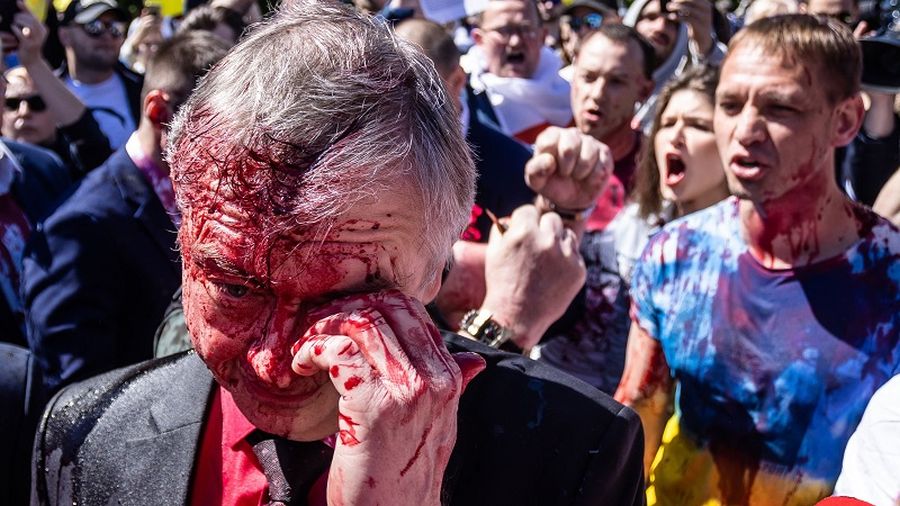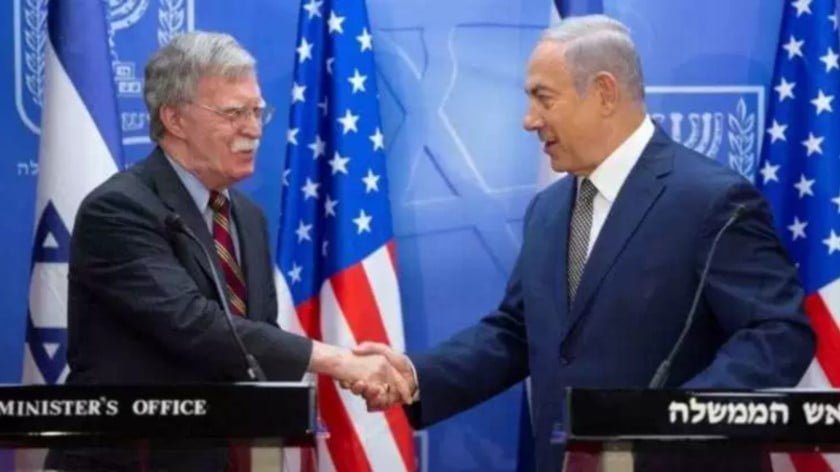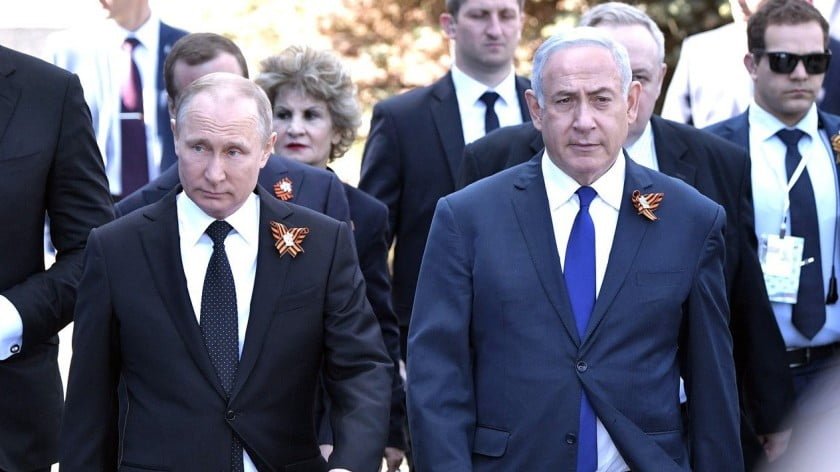Analyzing the Implications of the Fascist Attack on the Russian Ambassador to Poland
The emerging conclusion is that there’s much more to this scandal than just a single member of a supposedly spontaneous fascist refugee mob violating the Vienna Convention by suddenly attacking a foreign ambassador.
A scandal of epic proportions suddenly occurred on Monday after a fascist Ukrainian mob attacked the Russian Ambassador to Poland at the Soviet Military Cemetery in Warsaw on Victory Day. Sergey Andreev was trying to lay a wreath there to commemorate the over 600,000 Red Army soldiers who were martyred while liberating Poland from the Nazis’ genocidal occupation that killed over 6 million of them in just the span of five years from 1939-1944. A Ukrainian refugee named Iryna Zemliana claimed responsibility for dousing Ambassador Andreev with red syrup during the climax of this fascist attack, after which Russia’s top diplomat to Poland was promptly evacuated for his own safety in order to avoid his possible lynching in the worst-case scenario.
The run-up to this fascist attack is just as scandalous as the incident itself. The Polish Ministry of Foreign Affairs recommended against the Russian Ambassador going through with his planned commemoration of the Red Army, yet he ultimately decided to do so anyhow in order to presumably send the message that his country won’t be deterred by politicized excuses from paying respect to its eternal heroes from the Great Patriotic War. Upon arriving at the Soviet Military Cemetery, TASS reported that a fascist Ukrainian mob had already gathered and that there were no police present to control them. This obviously emboldened Zelmiana to attack Ambassador Andreev, which violated Article 29 of the Vienna Convention on Diplomatic Relations mandating security for foreign diplomats.
It’s inexplicable that Poland couldn’t protect him considering how effectively its security forces controlled the migrant mobs that were trying to break through the Belarusian border all throughout the second half of the prior year. This very strongly suggests that the local authorities passively facilitated the attack in a so-called “plausibly deniable” way by at the very least refusing to control the fascist Ukrainian mob in the expectation that they’ll provoke an incident like what ultimately happened. Nevertheless, Foreign Minister Zbigniew Rau condemned the attack, described it as regrettable, and reaffirmed that all diplomats enjoy special protection regardless of their country’s policies. He also acknowledged how serious the incident was, too.
Objectively speaking, this attack puts Poland in a very uncomfortable position. First, its local security authorities neglected to provide proper protection for the Russian Ambassador, which violates the Vienna Convention. Second, they passively facilitated the attack by refusing to control the fascist Ukrainian mob that gathered at the Soviet Military Cemetery in Warsaw. And third, a Ukrainian refugee living in Poland as a guest of its people was responsible for this scandal of epic proportions after violating the law by attacking Ambassador Andreev. All three of these points have enormous implications for Polish interests, which are decisively negative and will now be expanded upon a bit in order to understand the larger significance.
Regarding the first, this inexplicable neglect of Poland’s legal obligations hints at a preplanned provocation. Considering the Foreign Minister’s condemnation of it, he might not have even been aware that it was being plotted, which suggests that comparatively lower-level authorities were orchestrating this behind his back. Expounding upon that possibility, there might even be emerging rifts within Poland’s military-diplomatic structures over their country’s official approach to Russia. After all, there have been demands to expel the Russian Ambassador and officially sever relations with his country, though these haven’t been followed by the authorities. Those who organized this fascist attack or at the very least passively facilitated it might have hoped that it would result in the breaking of bilateral ties.
As for the second observation, this adds credence to the first but has an added layer of soft power significance. While Poland incontestably has the obligation to protect foreign diplomats, the optics of its security forces controlling a fascist Ukrainian mob at the Soviet Military Cemetery in its capital in order to allow the Russian Ambassador to commemorate the Red Army might have been regarded as “unacceptable” because it could have prompted furious blowback from members of the population. This could have explained why political officials went along with their security counterparts’ decision not to protect Ambassador Andreev, which implies that this plot involved more than just so-called “rogue” security officials like some might claim in an attempt to cover up this scandal.
Concerning the third point, the Ukrainization of Poland is already extremely controversial because these guests are being treated as first-class citizens with more rights than the locals. The New York Times even reported last month that “Warsaw’s biggest pediatric hospital has put patients from Ukraine on its waiting list for liver transplants, sometimes ahead of Polish children”, among the many other privileges that these neighboring people have been afforded, including generous socio-economic support. As evidenced by Monday’s incident, they can break the law with impunity by attacking a foreign diplomat without fear of being condemned by local officials, investigated, or deported. In the context of this scandal, this refugee mob was manipulated as “useful idiots” of those Polish officials behind this plot.
The emerging conclusion is that there’s much more to this scandal than just a single member of a supposedly spontaneous fascist refugee mob violating the Vienna Convention by suddenly attacking a foreign ambassador. The sequence of events very strongly suggests that local political and security officials at the very least passively facilitated this incident by purposely neglecting to provide adequate protection for the Russian envoy in the expectation that the mob would end up attacking him, which they hoped would lead to the severing of bilateral relations. The Polish Foreign Minister rightly condemned the attack and probably didn’t even know that it was being hatched behind his back by fellow Poles who wanted to punish his government for not expelling the ambassador and breaking off ties.
The only way to get down to the bottom of what happened is for the authorities to launch a transparent investigation into the incident, interrogating both local officials and Ukrainian refugees alike in order to find out exactly what happened and why. There are too many unanswered questions, most notably why the police refused to protect the ambassador and didn’t control the Ukrainian mob that had gathered at the Soviet Military Cemetery on Victory Day despite obviously having the capabilities to do so as last year’s Belarusian migrant crisis proves. Other questions include whether Zemliana colluded with local officials ahead of time or if she was just their “useful idiot”. Regardless of whatever the answers might be, Poland’s reputation is stained by this fascist scandal and likely won’t recover anytime soon.







